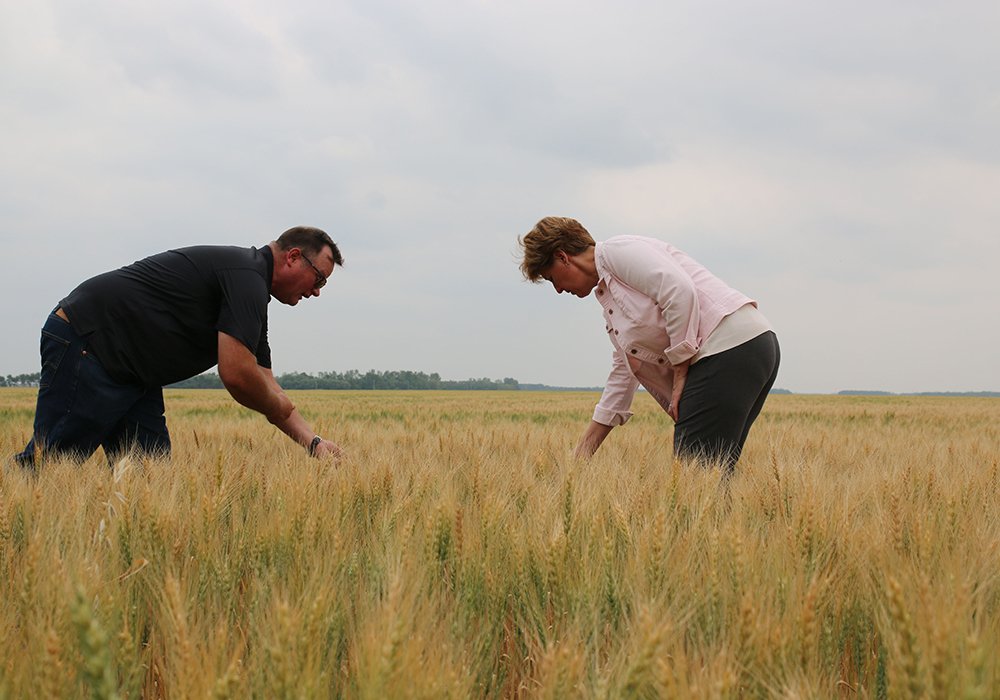Ottawa to trigger AgriRecovery to provide drought help

All three prairie provinces have asked for the program to be initiated and are now hoping details will come soon
Federal agriculture minister Marie-Claude Bibeau will initiate AgriRecovery now that formal requests have come in from provinces affected by heat and drought.
All three prairie provinces have asked for assessments, and British Columbia and Ontario are expected to do the same.
Officials are working on what the disaster assistance program will cover and the accompanying compensation levels. The cost-share is 60 percent federal and 40 percent provincial.
A spokesperson for the minister said she is well aware of the drought brought on by the unprecedented heat wave and lack of rain, and the need to act quickly. She intends to tour affected areas at some point.
Saskatchewan agriculture minister David Marit said he hopes details are available as soon as possible so that producers know what is available when they make individual management decisions.
AgriRecovery is meant to cover extraordinary costs that aren’t included in other programs. Provinces can make requests for assessment when certain disasters occur, but those requests aren’t always fulfilled.
This year’s drought is so widespread that the issue was a priority at the July 15 federal-provincial-territorial ministers’ meeting.
Marit said he would like to see AgriRecovery focus on uninsurable items such as putting up electric fence around cropland so that cattle can graze or the costs of pumping and hauling water to livestock.
“We’ll look at all the options and see where the federal government will go,” he said in an interview after a visit to a farm where a producer intended to cut 1,200 of his 1,500 acres for livestock feed.
That follows his July 14 announcement of changes the province had made to the Farm and Ranch Water Infrastructure Program (FRWIP) to help livestock producers secure some feed and water.
Grain farmers who participate in crop insurance can bale, graze or silage low-yielding crops as long as they call the Saskatchewan Crop Insurance Corp. first and leave a check strip if they need to do that before an adjuster is available.
SCIC is doubling the low-yield appraisal threshold for certain crops in these situations. The threshold for barley, for example, is seven bushels per acre but will be 14 bu. per acre for this year. Crops yielding below the thresholds will be reduced to zero for the claim.
The change to FRWIP increases the cap on projects to $150,000 between April 1 and March 31, 2022. The first $50,000 is cost-shared 50-50 and the remainder 70-30 government-producer.
Saskatchewan Cattlemen’s Association chair Arnold Balicki said livestock producers really need the co-operation of grain farmers to secure enough feed for fall and winter at a reasonable cost.
“You can only afford to pay what you can afford to pay,” he said.
He, like many others, is hauling water to cattle and said producers might have difficulty participating in FRWIP.
“Right now there’s a real lack of fiscal capacity,” he said.
AgriRecovery is the second step in this process, said Balicki. Cattle producers do not have enough feed to get through to next year.
“This year’s production is gone for all of us,” he said.
“Producers will be feeding earlier this fall and later next spring.”
In a statement after the meeting, Bibeau said her heart goes out to those farmers and ranchers.
“Our government is ready to assist and we will do what we can to make sure our programs are adequately responding to the crisis, including business risk management programs,” she said.
“I have committed to working closely with provinces to assess the need for activating flexibilities in our programs to respond to these extreme weather events.”
Her suggestion that provinces allow late participation in AgriStability and that the Prairies raise the AgriStability compensation level to 80 percent, however, didn’t gain much traction in some quarters.
Saskatchewan Stock Growers Association president Kelcy Elford said AgriStability “hasn’t been effective for the livestock sector for a long time.”
Marit has always said Saskatchewan can’t afford to increase the compensation rate — paying for AgriRecovery won’t be easy.
“Quite frankly, there isn’t a province in Canada that can afford it.”
Source: producer.com

